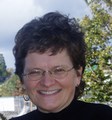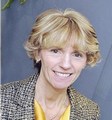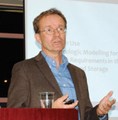Leading by Example in the Columbia Basin: Water Smart Champion Pilots Innovative Approach to Peer-to-Peer Water Utility Training

All across BC, water utility operators in rural areas face challenges in keeping up with mandatory certifications. The Columbia Basin region is piloting a new approach that may transform water operator training. “This new training model will allow the Basin’s resident-experts to teach the practical skills they know so well, which will further their own expertise, while also earning CEUs without stepping into a classroom,” states Joe McGowan.










